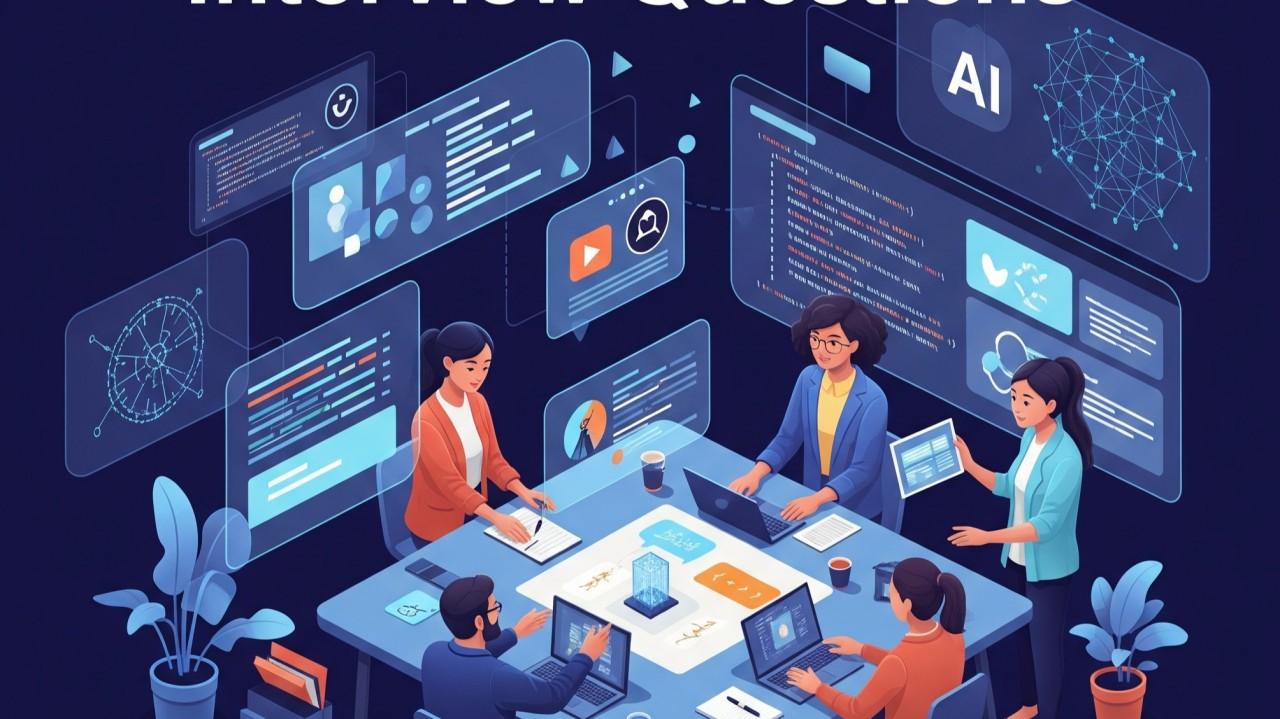Breaking into the world of machine learning (ML)
at top companies like FAANG, OpenAI, and Tesla is no small feat.These companies are at the forefront of technological innovation, and they set the bar high for their ML engineering roles. Understanding and avoiding common ML interview mistakes can make the difference between landing the job and missing out.. To give you an idea of
the competition, the acceptance rate for ML roles at companies like Google and Facebook is estimated to be
less than 1%—even lower than Ivy League admission rates. At OpenAI, which is known for its cutting-edge work
in AI research, the competition is even fiercer, with a significant portion of applicants not making it past
the initial screening.
Despite the daunting odds, the good news is that
there are currently thousands of open roles for ML engineers across these industry leaders. For instance, as
of Dec 2024, there are over 200 ML engineering positions available at Google alone, with similar numbers at
Amazon, Apple, and other top companies. Tesla and OpenAI also continue to expand their AI teams, offering
unique opportunities for those who are well-prepared.
Given the high stakes and the abundant
opportunities, it's crucial to avoid common mistakes that could cost you your dream job. In this blog, we'll
dive into the top 10 mistakes candidates often make in ML interviews and how you can steer clear of them to
stand out from the competition.
1. Overlooking
Fundamentals
In the race to master complex machine learning
(ML) techniques, many candidates make the mistake of overlooking the fundamentals. While it's tempting to
focus on advanced topics like deep learning or reinforcement learning, interviewers at top companies like
Google, Facebook, and Tesla often start with basic concepts. These foundational questions serve as a litmus
test for your understanding of the core principles that underlie more advanced techniques.
For instance, you might be asked to explain
linear regression, discuss the bias-variance tradeoff, or demonstrate how a decision tree works.
Surprisingly, a significant number of candidates stumble on these questions. A study by Interviewing.io found that nearly 50% of candidates who fail ML interviews do
so because they struggle with basic concepts. This suggests that a deep understanding of the fundamentals is
crucial for success.
Why It Matters: Top companies
use fundamental questions to assess whether you have a solid grounding in ML. If you can't confidently
explain or implement basic algorithms, it raises concerns about your ability to tackle more complex
problems.
How to Avoid This
Mistake:
Review Key
Concepts: Revisit essential topics such as linear regression, logistic regression,
decision trees, and clustering techniques. Make sure you can explain these concepts clearly and
apply them to real-world scenarios.
Practice Basic
Problems: Use platforms like LeetCode or InterviewBit to practice problems that focus
on fundamental ML concepts.
Understand the
Why: Don't just memorize formulas—understand why an algorithm works, what assumptions
it makes, and how it compares to other methods.
By reinforcing your understanding of the basics,
you'll be better prepared to tackle the challenging questions that come your way in an ML interview.
2. Lack of
Practical Experience
In today's competitive job market, theoretical
knowledge alone is not enough. Employers are looking for candidates who have hands-on experience applying
machine learning algorithms to real-world problems. Yet, many candidates make the mistake of focusing solely
on theory, leaving their practical skills underdeveloped.
This gap is often evident when candidates
struggle to explain how they’ve applied ML in a project or how they’ve handled challenges like data
preprocessing, feature selection, or model tuning. According to a survey by LinkedIn, ML roles require a
strong balance of theory and practical application, with over 80% of recruiters emphasizing the importance
of project experience during the hiring process.
Why It Matters: Employers want
to see that you can not only understand but also apply ML algorithms to solve real problems. They look for
evidence of your ability to handle messy, unstructured data, make decisions based on trade-offs, and
optimize models for performance.
How to Avoid This
Mistake:
Work on
Projects: Engage in ML projects that solve real-world problems. Platforms like Kaggle
offer datasets and competitions that simulate practical scenarios.
Contribute to
Open Source: Contributing to open-source ML projects can provide valuable experience
and demonstrate your practical skills to potential employers.
Build a
Portfolio: Create a portfolio that showcases your projects, detailing the problem, your
approach, and the results. This not only helps in interviews but also makes your resume stand
out.
By gaining hands-on experience, you demonstrate
that you can bridge the gap between theory and practice—an essential skill for any successful ML
engineer.
3. Ignoring the
Business Context
Another common mistake in ML interviews is
ignoring the business context of the problems you're solving. Machine learning is not just about building
models; it's about driving business outcomes. Interviewers expect candidates to understand how their
technical solutions align with the company’s goals and objectives. Failing to connect your ML solutions to
business impact can be a major red flag.
For example, you might be asked to design a model
to predict customer churn. While your model's accuracy is important, interviewers will also want to know how
you would implement this model in a business setting. How would you balance precision and recall? How would
the model's predictions impact the business, and what actions would you recommend based on those
predictions?
Why It Matters: Employers value
candidates who can think beyond the technical details and consider the broader implications of their work.
This shows that you understand the role of ML within the larger business strategy.
How to Avoid This
Mistake:
Study the
Company: Before your interview, research the company’s products, services, and market
position. Understand their business model and how ML could enhance their operations.
Connect the
Dots: During the interview, make an effort to explain how your technical solutions
could drive business value. For instance, discuss how improving model accuracy could lead to better
customer retention or higher sales.
Practice
Business Scenarios: Work on case studies that require you to solve a business problem
using ML. This will help you develop the ability to think critically about the business impact of
your solutions.
By demonstrating an understanding of the business
context, you show that you can deliver value beyond just building models—something top companies look for in
their ML engineers.
4. Poor
Problem-Solving Approach
Machine learning interviews often involve complex
problem-solving tasks that require a structured and logical approach. However, many candidates make the
mistake of jumping straight into coding or proposing a solution without fully understanding the problem.
This can lead to incomplete or incorrect answers, which reflect poorly on your problem-solving
abilities.
A common scenario might involve a candidate being
asked to develop an ML model to classify images. Without a clear understanding of the data, the problem
requirements, or the evaluation criteria, a candidate might rush into selecting an algorithm or coding a
solution. This approach often leads to overlooking important aspects, such as data preprocessing, feature
selection, or even the appropriateness of the chosen algorithm.
Why It Matters: Interviewers are
looking for candidates who can approach problems methodically, breaking them down into manageable steps.
This not only demonstrates your technical skills but also your ability to think critically and
systematically—key traits for any ML engineer.
How to Avoid This
Mistake:
Clarify the
Problem: Before diving into a solution, take the time to fully understand the problem.
Ask clarifying questions if necessary to ensure you’re addressing the correct issue.
Use a
Framework: Employ structured problem-solving frameworks like CRISP-DM (Cross-Industry
Standard Process for Data Mining) or a similar methodology to guide your approach.
Think
Aloud: During the interview, verbalize your thought process. This not only helps you
stay organized but also allows the interviewer to follow your reasoning and provide feedback.
By adopting a structured approach to
problem-solving, you can tackle complex ML interview questions with confidence and clarity, increasing your
chances of success.
5. Neglecting
Algorithm Optimization
Optimization is a crucial aspect of machine
learning, yet many candidates fail to give it the attention it deserves during interviews. Whether it’s
tuning hyperparameters, selecting the right features, or choosing the best evaluation metric, optimizing
your model is key to achieving high performance. Unfortunately, some candidates either overlook this step or
don’t fully understand the trade-offs involved in optimization.
For instance, you might be asked to improve the
performance of a classification model. While a candidate might correctly apply a standard algorithm, such as
a random forest, they could fail to optimize hyperparameters like the number of trees or the maximum depth.
This oversight can result in suboptimal model performance, which is a missed opportunity to demonstrate your
technical expertise.
Why It Matters: Optimization
shows that you understand the intricacies of ML algorithms and how to extract the best possible performance
from them. This is especially important in a production environment, where even small improvements can have
significant impacts.
How to Avoid This
Mistake:
Practice
Hyperparameter Tuning: Familiarize yourself with the common hyperparameters for
different algorithms and practice tuning them. Tools like GridSearchCV or RandomizedSearchCV in
Python’s scikit-learn library can be very useful.
Understand
Trade-Offs: Learn about the trade-offs involved in different optimization techniques,
such as the balance between bias and variance or the impact of overfitting.
Use Validation
Sets: Always validate your models using appropriate techniques, such as
cross-validation, to ensure that your optimizations generalize well to unseen data.
By mastering the art of algorithm optimization,
you can demonstrate a higher level of competence in your ML interviews, setting yourself apart from other
candidates.
6.
Overcomplicating Solutions
In the quest to impress interviewers, some
candidates make the mistake of overcomplicating their solutions. While it's important to showcase your
technical skills, complexity for complexity's sake can backfire. Interviewers often prefer clear, elegant
solutions that effectively solve the problem rather than convoluted approaches that are difficult to
understand or implement.
For example, a candidate might choose to
implement a deep learning model when a simpler algorithm like logistic regression would suffice. While deep
learning is powerful, it’s not always the best choice, especially if the problem doesn’t require such
complexity. Overcomplicating your solution can also make it harder to debug and explain, which can be a
significant disadvantage during an interview.
Why It Matters: Simplicity is
often a sign of mastery. Being able to identify the simplest and most effective solution demonstrates that
you have a deep understanding of the problem and the tools at your disposal.
How to Avoid This
Mistake:
Evaluate Your
Options: Before choosing a solution, consider whether a simpler approach might be more
effective. Weigh the pros and cons of different algorithms and choose the one that best fits the
problem.
Prioritize
Clarity: Focus on writing clean, understandable code. If you’re using a complex method,
make sure you can clearly explain why it’s necessary and how it improves the solution.
Keep the Big
Picture in Mind: Remember that the goal is to solve the problem effectively, not to use
the most advanced techniques available. Choose the approach that will deliver the best results with
the least complexity.
By avoiding unnecessary complexity, you can
present solutions that are both effective and easy to understand—qualities that interviewers greatly
appreciate.
7. Failing to
Communicate Clearly
Clear communication is essential in any technical
interview, especially in the field of machine learning. However, many candidates struggle to articulate
their thoughts, explain their reasoning, or describe their solutions in a way that’s accessible to their
interviewers. This can be a significant barrier to success, as even the best technical skills can be
undermined by poor communication.
For example, when explaining a complex ML
algorithm, some candidates might use too much jargon or skip over key details, leaving the interviewer
confused or unconvinced of their understanding. Others might fail to explain the rationale behind their
choices, such as why they selected a particular model or optimization technique. This can lead to
misunderstandings and a lack of confidence in your abilities.
Why It Matters: Effective
communication is crucial because it shows that you can explain complex concepts to both technical and
non-technical stakeholders. In a real-world job setting, you’ll need to communicate your ideas clearly to
team members, managers, and sometimes even clients.
How to Avoid This
Mistake:
Practice
Explaining Concepts: Regularly practice explaining ML concepts and your approach to
problems, both to yourself and to others. This will help you refine your communication skills and
identify any gaps in your understanding.
Use Analogies
and Examples: When explaining complex ideas, use analogies or examples to make them
more relatable. This can help the interviewer follow your reasoning more easily.
Be Concise and
Organized: Structure your answers logically, starting with the big picture before
diving into details. Avoid rambling and stay focused on the key points.
By improving your communication skills, you can
ensure that your technical expertise is fully recognized and appreciated during your ML interviews.
8. Inadequate
Preparation for Behavioral Questions
While technical skills are crucial for landing an
ML role, many candidates underestimate the importance of behavioral interviews. Companies like Google,
Amazon, and OpenAI place a strong emphasis on cultural fit, soft skills, and the ability to work well in a
team. Failing to prepare for behavioral questions can result in a missed opportunity to showcase your full
potential.
Common behavioral questions might include
scenarios about conflict resolution, leadership experiences, or how you handle failure. These questions are
designed to assess your interpersonal skills, your ability to adapt, and how well you align with the
company’s values. Unfortunately, some candidates are so focused on technical preparation that they neglect
these critical aspects of the interview.
Why It Matters: Behavioral
questions help interviewers gauge whether you’ll be a good fit for the team and the company culture.
Demonstrating that you possess the necessary soft skills and that you can handle various challenges is just
as important as showcasing your technical prowess.
How to Avoid This
Mistake:
Prepare with the
STAR Method: Use the STAR method (Situation, Task, Action, Result) to structure your
responses to behavioral questions. This helps you provide clear, concise, and impactful
answers.
Reflect on Past
Experiences: Think about past experiences where you demonstrated key soft skills, such
as teamwork, problem-solving, or leadership. Be ready to discuss these in detail.
Understand the
Company’s Culture: Research the company’s values and culture to tailor your answers.
Show that you understand what they’re looking for and how you embody those qualities.
By adequately preparing for behavioral questions,
you can demonstrate that you’re not only a technical fit but also a cultural fit for the company.
9. Not Staying
Updated with the Latest Trends
The field of machine learning is constantly
evolving, with new techniques, tools, and frameworks emerging regularly. However, some candidates make the
mistake of relying solely on outdated knowledge or failing to stay current with the latest trends. This can
be a significant disadvantage in interviews, especially at leading tech companies that prioritize innovation
and cutting-edge solutions.
For instance, being unfamiliar with recent
advancements in deep learning architectures, such as transformers or large language models (LLMs), could
signal to an interviewer that your knowledge is outdated. Similarly, not being aware of the latest tools and
libraries, such as TensorFlow or PyTorch, might suggest that you’re not actively engaged with the ML
community.
Why It Matters: Staying updated
with the latest trends shows that you’re passionate about the field and committed to continuous learning. It
also ensures that you’re equipped to solve modern ML problems using the most effective tools and
techniques.
How to Avoid This
Mistake:
Follow ML Blogs
and Journals: Regularly read blogs, journals, and news sites that cover the latest
developments in machine learning. Sources like arXiv, Towards Data Science, and the Journal of
Machine Learning Research are good places to start.
Engage in Online
Communities: Join online ML communities, such as those on Reddit, Stack Overflow, or
Kaggle, to stay informed about the latest trends and discuss them with peers.
Take Online
Courses: Enroll in online courses or attend webinars that cover new tools and
techniques. Platforms like Coursera, Udemy, and edX offer courses on the latest in ML.
By keeping your knowledge up-to-date, you can
confidently discuss current trends and technologies in your interviews, demonstrating that you’re
well-prepared for the challenges of today’s ML roles.
10.
Underestimating the Importance of Mock Interviews
Finally, one of the most overlooked aspects of ML
interview preparation is the value of mock interviews. Many candidates mistakenly believe that studying
alone is enough, but without practicing in a simulated interview environment, you might not be fully
prepared for the pressure and dynamics of the actual interview.
Mock interviews provide a safe space to make
mistakes, receive feedback, and refine your approach. They help you become more comfortable with the
interview format, whether it’s technical questions, problem-solving scenarios, or behavioral interviews.
According to a report by Glassdoor, candidates who engage in mock interviews are significantly more likely
to receive job offers compared to those who don’t.
Why It Matters: Mock interviews
help you identify your strengths and weaknesses, improve your confidence, and increase your familiarity with
common interview questions. This preparation can be the difference between a pass and a fail.
How to Avoid This
Mistake:
Schedule Regular
Mock Interviews: Use platforms like Interviewing.io, Pramp, or even InterviewNode to schedule mock
interviews with peers or professionals.
Simulate Real
Conditions: Try to replicate the interview environment as closely as possible. Time
yourself, avoid interruptions, and treat it as seriously as the real thing.
Analyze
Feedback: After each mock interview, review the feedback carefully and work on the
areas that need improvement.
By incorporating mock interviews into your
preparation routine, you can greatly enhance your performance, making you more likely to succeed in your ML
interviews.
Securing a machine learning role at top companies
like Google, OpenAI, or Tesla is a challenging but achievable goal—especially if you avoid the common
mistakes that often trip up candidates. From mastering the fundamentals to staying current with the latest
trends, every aspect of your preparation plays a crucial role in your success. Remember, it’s not just about
what you know, but how you apply and communicate that knowledge in a high-pressure interview setting.
By steering clear of these pitfalls, you can
position yourself as a strong candidate, ready to take on the complex and exciting challenges that come with
a career in machine learning. Don’t forget to take advantage of the many resources available to you,
including mock interviews and project-based learning, to ensure you’re fully prepared.
If you’re looking for more guidance on preparing
for ML interviews, be sure to explore the resources available at InterviewNode. With the right preparation
and mindset, you could soon land the ML job of your dreams.






